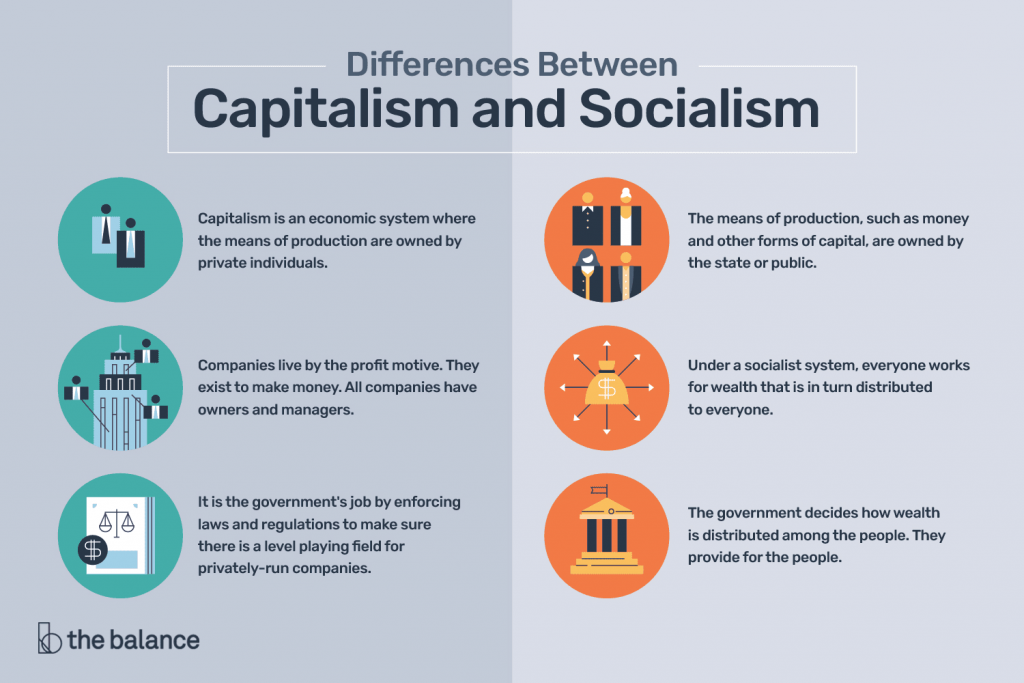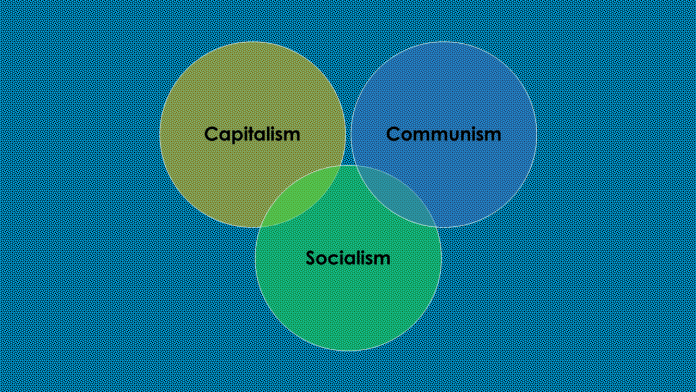Some terms describing economic systems can cause strong emotional reactions, depending on the audience. In the United States, the words “communist” and “socialist” have been used as negative adjectives.
During the 1950s, Senator Joseph McCarthy, chairman of the Senate Subcommittee on Investigations, conducted hearings in which he accused communists of having infiltrated the State Department, the Army Signal Corps, and other government and private enterprises. According to the U.S. Senate archives, “Senator McCarthy’s repeated badgering of witnesses, exaggerated claims, and disregard of due process eventually led to his December 1954 censure for conduct unbecoming a senator.”
Capitalism

Capitalism is an economic system in which private parties own the means of production which are operated to produce a profit for the owners and investors. Decisions regarding distribution and price are made by the owners rather than by any central agency of the government. These private enterprises employ workers for wages to produce their products or services.
Some define capitalism more loosely, in that many of the means of production are privately owned, but all are operated to produce a profit. Capitalism was widely adopted in the Western world and contributed to industrialization worldwide. Laissez-faire capitalism refers to capitalist activities free from any government regulation, taxes, or tariffs.
Socialism

Socialism is a system in which the means of production is held in common and management is cooperative in nature. Under socialism, workers carry out production and are compensated on merit and the amount of labor contributed to the society.
Socialists believe that this system prevents the accumulation of wealth among a few private owners at the expense of the majority and gives workers more opportunity than capitalism to maximize their potential. In practice, a wide range of attitudes exist in socialist countries regarding civil liberties and democratic selection of leaders, ranging from democratic socialism to more totalitarian political systems.
Communism

Communism is a sociopolitical system in which ownership of the means of production is communal and private property and wage labor is eliminated. Different varieties of communism are practiced, but most are derived from the theories of Karl Marx.
Pure communism refers to a society without classes in which decisions regarding policies and production are made with the best interests of the collective society in mind. Communist theory usually states that since the working class is exploited by the ruling class in capitalist societies, the working class must replace the ruling class.


















